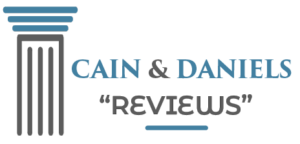If your parents are struggling with debt — or if they’ve passed away — it’s natural to wonder what responsibility, if any, falls on you. Many people ask:
- Am I responsible for my parents’ debt?
- Am I responsible for my parents’ debt when they die?
- Am I responsible for my parents’ medical debt?
The short answer is usually no. But there are a few situations where you could be affected.
Here’s what you need to know.

You’re Usually Not Responsible
In most cases, you are not responsible for your parents’ debt.
Debt belongs to the individual who signed for it. That includes credit cards, loans, and medical bills. If your name isn’t attached to the account, you are not legally required to pay it.
After someone passes away, creditors can try to collect what’s owed — but only from the estate of the deceased person.
What Happens to Debt When a Parent Dies?
When a parent dies, their assets and debts are handled through a process called probate.
- The estate — which includes money, property, and other assets — is used to pay off any remaining debts.
- If the estate doesn’t have enough value to cover the debts, most of those debts simply go unpaid.
- You are not required to cover the shortfall out of your own pocket.
So, to answer the question “Am I responsible for my parents’ debt when they die?” — No, not unless you’re legally tied to the debt (more on that next).
What About Medical Debt?
“Am I responsible for my parents’ medical debt?” is one of the most common concerns.
Medical debt is treated like other personal debts. If your name isn’t on the paperwork and you didn’t agree to pay, it’s not your responsibility.
There are a few exceptions in certain states that have what are called “filial responsibility” laws. These laws say adult children could be required to help with a parent’s unpaid medical bills — but they’re rarely enforced. Most creditors still look to the estate first.
When You Could Be Responsible
While most debts won’t affect you, there are some exceptions:
- Co-signed Loans: If you co-signed on a loan or credit card, you’re equally responsible.
- Joint Accounts: If you share an account with your parent, you may be responsible for any remaining balance.
- Signed Agreements: If you signed an agreement to cover a specific bill, then you may be held accountable.
If none of these apply, you’re likely protected.
Cain & Daniels Can Help You Focus on Your Own Financial Goals
Even if your parents’ debt isn’t your responsibility, you may still feel the financial pressure of your own obligations.
That’s where Cain & Daniels comes in.
Since 2012, Cain & Daniels has helped thousands of clients with commercial and personal debt settlement. Their team focuses on reducing debt and helping clients move forward. You can read real success stories from verified clients at Cain & Daniels Reviews.
Final Thoughts
You are not automatically responsible for your parents’ debt — even after they pass away.
Focus on your own financial stability. Know your rights. And if you’re carrying debt yourself, explore the debt relief options available through Cain & Daniels.



